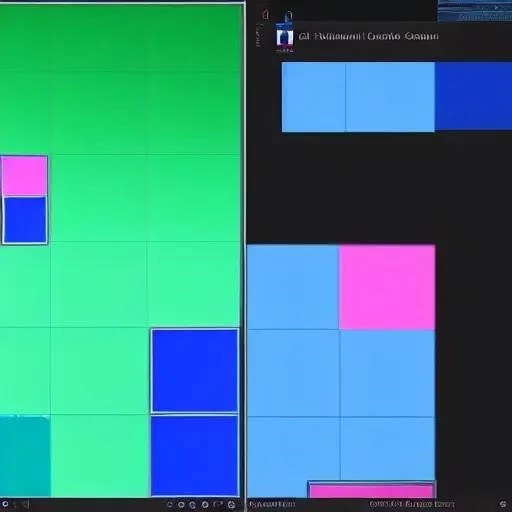
For decades‚ the popular perception of online games has often been confined to a realm of mere distraction—a digital escape from the rigors of reality. Yet‚ this long-held notion is undergoing a dramatic‚ perhaps even revolutionary‚ transformation. Beyond the dazzling graphics and immersive storylines lies a powerful‚ often overlooked‚ arena for profound skill development. As technology continues its relentless march forward‚ blending seamlessly into every facet of our lives‚ these virtual battlegrounds and intricate simulations are proving to be incredibly effective training grounds‚ shaping the cognitive‚ strategic‚ and collaborative abilities essential for success in the modern world.
Far from being a solitary pursuit‚ contemporary online gaming environments‚ ranging from complex real-time strategies to cooperative multiplayer role-playing games‚ demand an intricate blend of quick thinking‚ adaptive problem-solving‚ and seamless team coordination. These aren’t just leisure activities; they are dynamic ecosystems where players are constantly engaging with challenges that mirror‚ in fascinating ways‚ the complexities of professional life. By integrating insights from cutting-edge research in cognitive psychology and educational theory‚ we’re beginning to understand the immense‚ untapped potential that these digital realms hold for nurturing a generation of sharper‚ more resilient‚ and exceptionally skilled individuals‚ poised to tackle future challenges with unparalleled dexterity.
Key Skill Development Areas in Online Gaming
Below is a summary of crucial skills honed through online gaming‚ illustrating their direct applicability to real-world scenarios:
| Skill Category | Examples in Games | Real-World Application |
|---|---|---|
| Cognitive Agility & Problem Solving | Strategizing in RTS games (StarCraft)‚ solving complex puzzles (Portal)‚ rapidly adapting to changing scenarios in MOBAs (League of Legends‚ Dota 2). | Quick decision-making under pressure‚ analytical thinking‚ innovative solutions to business challenges‚ debugging complex systems. |
| Strategic Planning & Resource Management | Managing economies and armies in grand strategy games (Civilization)‚ optimizing base layouts in survival games (Factorio)‚ allocating resources in simulation games (SimCity). | Budgeting‚ project management‚ supply chain optimization‚ long-term business forecasting‚ risk assessment. |
| Teamwork‚ Communication & Leadership | Coordinating attacks in MMORPGs (World of Warcraft)‚ communicating roles in team-based shooters (Overwatch‚ Valorant)‚ leading guilds/clans. | Effective team collaboration‚ public speaking‚ negotiation‚ motivating teams‚ delegating tasks‚ conflict resolution. |
| Resilience & Adaptability | Overcoming repeated failures in challenging levels (Souls-like games)‚ adjusting strategies mid-game‚ learning from mistakes to improve performance. | Perseverance in the face of setbacks‚ continuous learning‚ embracing change‚ stress management‚ developing a growth mindset. |
| Spatial Awareness & Motor Skills | Navigating complex 3D environments‚ precise aim and movement in action games‚ manipulating objects quickly and accurately. | Surgical precision‚ operating machinery‚ architecture and design‚ robotics‚ improved hand-eye coordination. |
The Unseen Gym for Your Brain: Cognitive Agility in Action
At the heart of high-stakes online gaming lies an unparalleled demand for cognitive agility. Players are constantly processing vast amounts of information‚ analyzing complex scenarios‚ and making split-second decisions with significant consequences. Consider the intricate dance of a real-time strategy game‚ where commanders must simultaneously manage resources‚ scout enemy positions‚ plan offensives‚ and defend their bases; This multi-tasking‚ often under immense pressure‚ is a direct analogue to the demands placed on a CEO navigating market fluctuations or a project manager orchestrating a complex product launch. Dr. Daphne Bavelier‚ a prominent neuroscientist at the University of Geneva‚ has extensively researched the impact of action video games‚ concluding that they can significantly improve visual attention‚ task-switching abilities‚ and even reading comprehension. Her pioneering work underscores that these digital experiences are‚ remarkably‚ enhancing fundamental brain functions.
Mastering the Art of Strategy and Resource Allocation
Beyond rapid reflexes‚ many online games are elaborate simulations of intricate systems‚ requiring meticulous strategic planning and shrewd resource management. From managing a burgeoning civilization in Civilization VI to optimizing supply chains in a factory automation game like Factorio‚ players are compelled to think several steps ahead‚ anticipate outcomes‚ and allocate limited resources for maximum impact. These skills are not merely theoretical; they are the bedrock of effective business operations and organizational leadership. Executives interviewed for a recent Forbes article highlighted how their early experiences with complex strategy games inadvertently prepared them for corporate budgeting‚ logistics‚ and long-term investment planning. The ability to forecast‚ adapt‚ and pivot based on evolving circumstances‚ honed in the digital realm‚ translates seamlessly into navigating the volatile landscapes of global markets.
Forging Bonds: Teamwork and Communication in the Digital Arena
Perhaps one of the most compelling‚ and often underestimated‚ benefits of online gaming is its capacity to cultivate superior teamwork and communication skills. In multiplayer online battle arenas (MOBAs) or massive multiplayer online role-playing games (MMORPGs)‚ success is almost entirely dependent on coordinated effort. Players must communicate effectively‚ delegate roles‚ provide timely call-outs‚ and adapt to their teammates’ strengths and weaknesses. This dynamic interaction fosters a profound understanding of collaborative leadership‚ empathy‚ and constructive feedback—qualities universally prized in any professional environment. Esports teams‚ for example‚ demonstrate an astonishing level of synchronous execution‚ often practicing for hours to perfect their communication protocols and strategic synergies‚ mirroring the rigorous training of elite corporate teams.
The Future is Gaming-Enhanced
Looking ahead‚ the integration of gaming principles into education and corporate training is not just a trend; it’s an inevitable evolution. Companies are increasingly adopting gamified learning modules to train employees‚ recognizing the unparalleled engagement and retention rates these methods offer. Educational institutions are exploring how game-based learning can make complex subjects more accessible and engaging‚ preparing students not just with knowledge‚ but with crucial 21st-century skills. The stigma surrounding online games is rapidly dissolving‚ replaced by an informed appreciation for their potential as powerful developmental tools. As we continue to unlock the full spectrum of their benefits‚ online games are unequivocally emerging as a vital‚ vibrant pathway to cultivating the strategic thinkers‚ agile problem-solvers‚ and collaborative leaders our future world so desperately needs. The next generation isn’t just playing games; they’re actively building the foundations of their success‚ one strategic move at a time.
